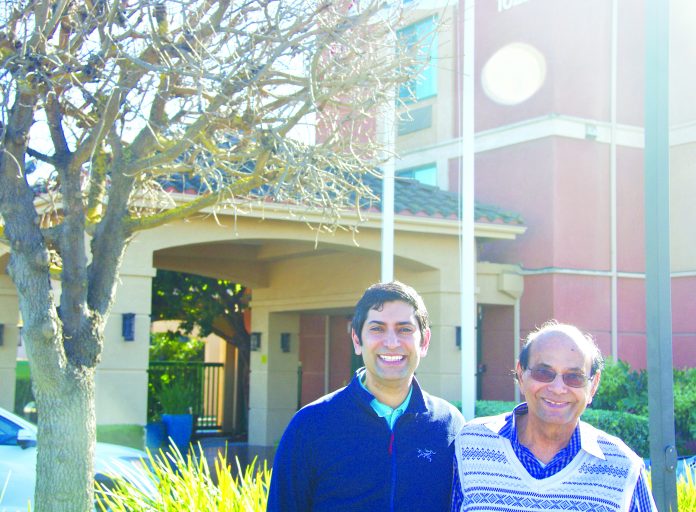
The fight over the two proposed Madrone business park hotels took another step forward March 6, when local hoteliers turned over petition signatures to the Morgan Hill City Clerk’s office. The petition was turned in two days before the official deadline that comes 30 days after the council’s decision to approve a land use change at Madrone Village that allows two new hotels to be built on a vacant property.
Maureen Tobin, the city’s communications and engagement manager, confirmed that the minimum number of necessary signatures was verified by Deputy City Clerk Michelle Bigelow. The petition needed the signatures of at least 10 percent of Morgan Hill’s registered voters, or 2,390 of 23,897, in order for it to be certified.
The petition asks the council to repeal its Feb. 6 zoning amendment for the property off Cochrane Road in north Morgan Hill, or place a referendum on a local election ballot to ask the voters to decide whether the property’s use should be reclassified.
Asit Panwala, an attorney whose parents own the Comfort Inn, has been speaking on behalf of hoteliers who oppose the construction of two new lodging facilities in Madrone Village. He told the Times that the petition received 3,965 signatures, and he is confident most of those will be certified. Some signatures may not count on the petition because the signer lives outside of city limits or is not a registered voter.
The City Council unanimously approved the change in use for lots in Madrone Village in February. The proposed project would allow a Hilton Home 2 Suites and a Fairfield Inn and Suites. Madrone business park is located at Madrone Parkway and Cochrane Road.
A group of hoteliers who opposed the new hotels began collecting signatures through paid signature gatherers in an effort to trigger a citywide vote on the matter.
The petition has been a point of contention between the project developer, the longtime hoteliers and the city. When the petition first began to circulate, the city sent an email to residents, warning that a reversal of the decision could lead to a decrease in expected transient occupancy tax, or hotel tax revenue. Hotel owners believe the addition of two new hotels without an increase in tourism will lead to a saturation of rooms in Morgan Hill, in turn driving down prices.
Now that the petition has been turned over to the city, the Santa Clara County Registrar of Voters will have 30 days to verify the results by selecting a random 3 percent of signatures. Tobin told the Times in an email, “If the statistical sample indicates that the proponent is within 95 to 110 percent of the required signatures, the county ROV will validate all signatures until the required number is reached.”
If the signatures are verified, they will be presented at the next regular council meeting following verification, and the council will decide whether to repeal the decision or put it to a city vote. A similar scenario played out regarding a 2015 rezoning of a property for hotel use, ending up with the California Supreme Court in August 2018.
The state’s highest court settled a decision, ruling that residents of Morgan Hill had the right to vote on a zoning change that would have allowed for a hotel on a 3.39-acre site near the corner of Madrone Parkway and Lightpost Way.
However, there are key differences between the two land use issues. The council’s Madrone Village decision was a change from one type of commercial use to another that allows hotels. The 2015 decision was a change from industrial to commercial.
“The election cannot be held for at least 88 days after the certification of the petition,” Tobin told the Times. “In this case the election would likely be held as a special election in November 2019, a special election at the primary in March 2020, or at the next regular election in November 2020.”
Panwala believed the signatures were a sign that despite pushback from the developers, who ran ads and contracted people to hand out fliers against the petition, the people of Morgan Hill still wanted to vote on the issue. Panwala said, “People still felt strongly about the issue and the notion they should decide for themselves.”







